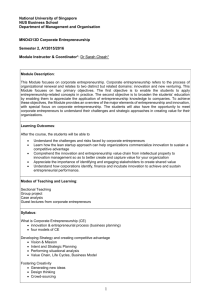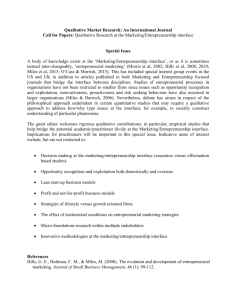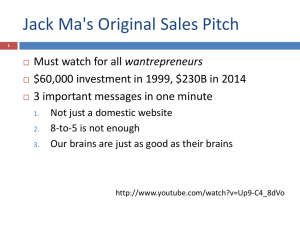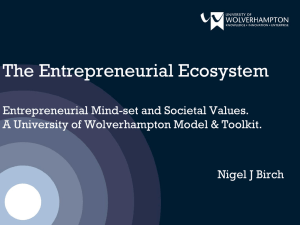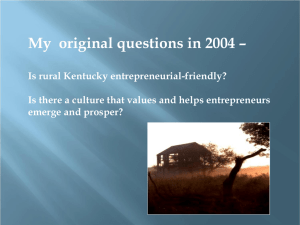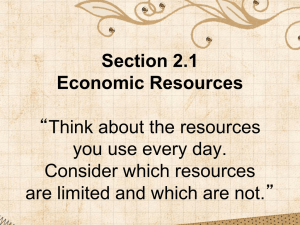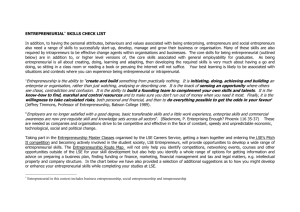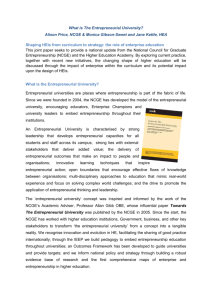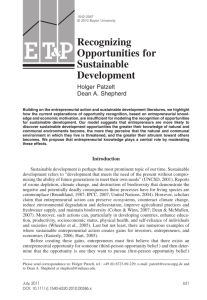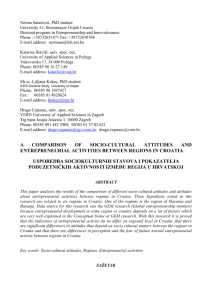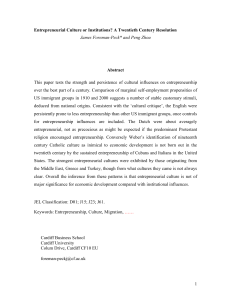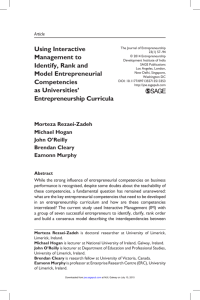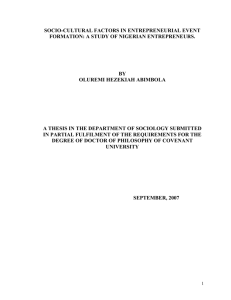January 2016 Special Issue: Careers
advertisement
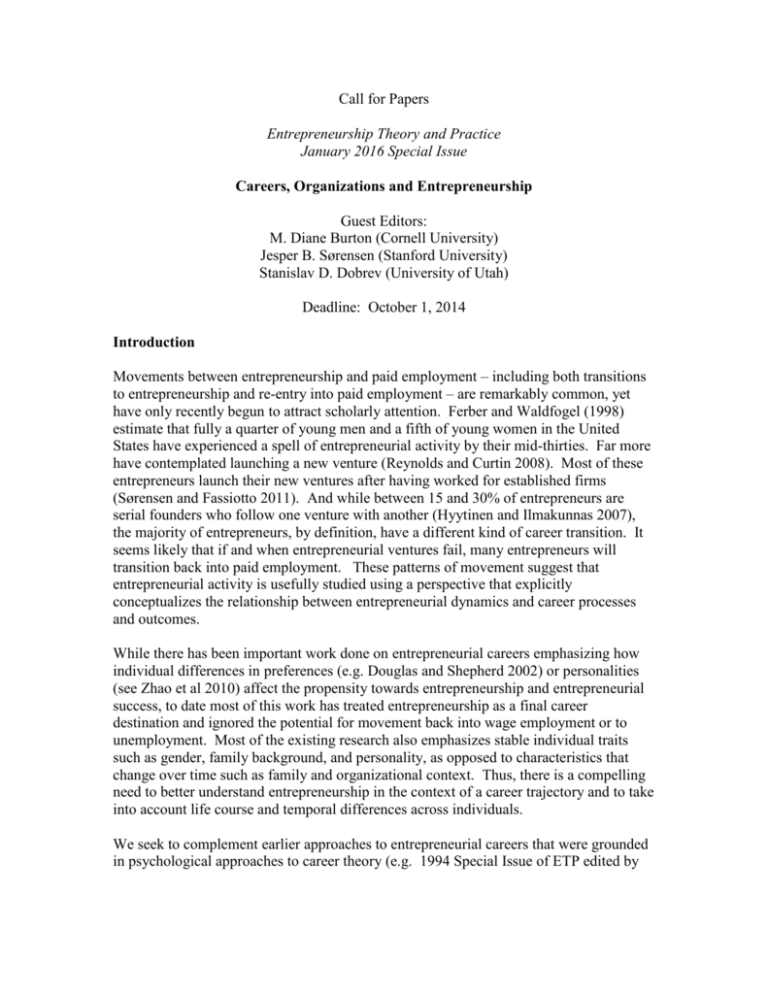
Call for Papers Entrepreneurship Theory and Practice January 2016 Special Issue Careers, Organizations and Entrepreneurship Guest Editors: M. Diane Burton (Cornell University) Jesper B. Sørensen (Stanford University) Stanislav D. Dobrev (University of Utah) Deadline: October 1, 2014 Introduction Movements between entrepreneurship and paid employment – including both transitions to entrepreneurship and re-entry into paid employment – are remarkably common, yet have only recently begun to attract scholarly attention. Ferber and Waldfogel (1998) estimate that fully a quarter of young men and a fifth of young women in the United States have experienced a spell of entrepreneurial activity by their mid-thirties. Far more have contemplated launching a new venture (Reynolds and Curtin 2008). Most of these entrepreneurs launch their new ventures after having worked for established firms (Sørensen and Fassiotto 2011). And while between 15 and 30% of entrepreneurs are serial founders who follow one venture with another (Hyytinen and Ilmakunnas 2007), the majority of entrepreneurs, by definition, have a different kind of career transition. It seems likely that if and when entrepreneurial ventures fail, many entrepreneurs will transition back into paid employment. These patterns of movement suggest that entrepreneurial activity is usefully studied using a perspective that explicitly conceptualizes the relationship between entrepreneurial dynamics and career processes and outcomes. While there has been important work done on entrepreneurial careers emphasizing how individual differences in preferences (e.g. Douglas and Shepherd 2002) or personalities (see Zhao et al 2010) affect the propensity towards entrepreneurship and entrepreneurial success, to date most of this work has treated entrepreneurship as a final career destination and ignored the potential for movement back into wage employment or to unemployment. Most of the existing research also emphasizes stable individual traits such as gender, family background, and personality, as opposed to characteristics that change over time such as family and organizational context. Thus, there is a compelling need to better understand entrepreneurship in the context of a career trajectory and to take into account life course and temporal differences across individuals. We seek to complement earlier approaches to entrepreneurial careers that were grounded in psychological approaches to career theory (e.g. 1994 Special Issue of ETP edited by Jerome Katz and Edgar Schein) that emphasize stable individual traits with structural approaches that emphasize organizational context and change. For this special issue we seek theoretical and empirical work that advances our understanding of the multiple ways in which career experiences shape entrepreneurial activity, and the ways in which entrepreneurial activity shapes career experiences. Examples of relevant topics include but are not limited to: The role of work experiences on the rate and nature of entrepreneurial entry The impact of employer characteristics and policies on new venture formation and outcomes The dynamics of spin-offs and spin-outs The career trajectories and outcomes of founders The impact of entrepreneurial failure on subsequent outcomes in paid employment Submissions should be prepared in accordance with ET&P’s guidelines and submitted via Manuscript Central ( http://mc.manuscriptcentral.com/etp ) between September 1 and October 1, 2014. When submitting, be sure to indicate the submission is for the special issue on Careers, Organizations and Entrepreneurship in the appropriate box. Questions regarding the special issue may be addressed to: Diane Burton (burton@cornell.edu) References Douglas, Evan J. and Dean A. Shepherd (2002) “Self-Employment as a Career Choice: Attitudes, Entrepreneurial Intentions, and Utility Maximization.” Entrepreneurship: Theory & Practice. 26 (3): 81-90. Ferber, Marianne and Jane Waldfogel. 1998. "The Long-Term Consequences of NonStandard Work." Monthly Labor Review 121 (5): 3-12. Hyytinen, Ari and Pekka Ilmakunnas 2007. “What distinguishes a serial entrepreneur?” Industrial and Corporate Change. 16 (5): 793-821. Reynolds, Paul D., and Richard T. Curtin. 2008. “Business Creation in the United States: Panel Study of Entrepreneurial Dynamics II Initial Assessment.” Foundations and Trends in Entrepreneurship 4: 155-307. Sørensen, Jesper B. and Magali A. Fassiotto. 2011. “Organizations as Fonts of Entrepreneurship.” Organization Science 22 (5): 1322-1331. Zhao, H., Seibert, S. E., & Lumpkin, G. T. (2010). The Relationship of Personality to Entrepreneurial Intentions and Performance: A Meta-Analytic Review. Journal Of Management 36(2): 381-404.



